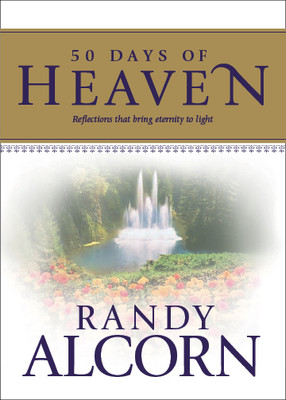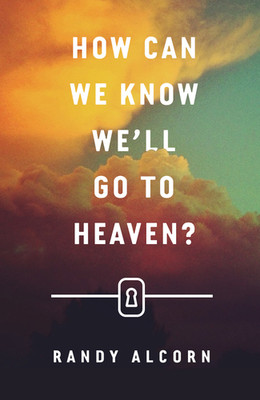For every American who believes they’re going to Hell, there are 120 who believe they’re going to Heaven. This optimism stands in stark contrast to Christ’s words in Matthew 7:13-14: “…wide is the gate and broad is the road that leads to destruction, and many enter through it. But small is the gate and narrow the road that leads to life, and only a few find it.” As C. S. Lewis wrote, “The safest road to hell is the gradual one—the gentle slope, soft underfoot, without sudden turnings, without milestones, without signposts.”
What would keep us out of Heaven is universal: “All have sinned and fall short of the glory of God” (Romans 3:23). God is so holy that He cannot allow sin into His presence: “Your eyes are too pure to look on evil; you cannot tolerate wrong” (Habakkuk 1:13). Because we are sinners, we cannot enter Heaven as we are. Unless our sin problem is resolved, the only place we will go is our true default destination . . . Hell.
The great danger is to assume we are headed for Heaven. Judging by what’s said at most funerals, you’d think nearly everyone’s going.
We dare not “wait and see” when it comes to what’s on the other side of death. We can know, we should know, before we die. And because we may die at any time, we need to know now—not next month or next year. “Why, you do not even know what will happen tomorrow…You are a mist that appears for a little while and then vanishes” (James 4:14).
The voice that whispers, “There’s no hurry; you can always think about it later,” is not God’s voice.
Hell: Heaven’s Awful Alternative
Christ’s return will initiate a resurrection of believers for eternal life in Heaven and a resurrection of unbelievers for eternal existence in Hell (John 5:28-29). The unsaved—everyone whose name is not written in the Lamb’s Book of Life—will be judged according to the works they have done, as recorded in Heaven’s books (Revelation 20:12-15). Because those works include sin, people without Christ cannot enter the presence of a holy and just God and will be consigned to a place of everlasting destruction (Matthew 13:40-42).
Hell will not be like its stereotype found in comic strips, a giant lounge where between drinks people tell stories of their escapades on Earth. Because God is the source of all good, and Hell is the absence of God, community, fellowship, and friendship—rooted in the triune God Himself—can’t exist. Likely, each entity rules its own tiny kingdom of self, just as Jesus portrays the rich man alone in Luke 16:22-23. Misery loves company, but there will be nothing to love in Hell.
This is why Dante, in the Inferno, envisioned this sign chiseled above Hell’s gate: “Abandon every hope, you who enter.”
Hell has become “the H word,” seldom named, rarely talked about. Satan has obvious motives for fueling our denial of eternal punishment: he wants unbelievers to reject Jesus without fear, Christians to be unmotivated to share Christ, and God to receive less glory for the radical nature of Christ’s redemptive work.
God Never Sends Anyone to Hell
Hell seems disproportionate, a divine overreaction. In the words of one professor and contributor to an evangelical publication, “I consider the concept of hell as endless torment in body and mind an outrageous doctrine. . . . Surely a God who would do such a thing is more nearly like Satan than like God.”
Many imagine that it is civilized, humane, and compassionate to deny the existence of an eternal Hell, but in fact it is arrogant. For, if we understood God’s nature and ours, we would be shocked not that some people could go to Hell (where else would sinners go?), but that any would be permitted into Heaven.
In The Great Divorce, C. S. Lewis wrote, “There are only two kinds of people in the end: those who say to God, ‘Thy will be done,’ and those to whom God says, in the end, ‘Thy will be done.’ All that are in Hell, choose it. Without that self-choice there could be no Hell. No soul that seriously and constantly desires joy will ever miss it. Those who seek find.”
What Did Jesus Say about Hell?
In the Bible, Jesus says more than anyone else about Hell (Matthew 10:28; 13:40-42; Mark 9:43-44). He refers to it as a literal place and describes it in graphic terms—including raging fires and the worm that doesn’t die. Christ says the unsaved “will be thrown outside, into the darkness, where there will be weeping and gnashing of teeth” (Matthew 8:12). In His story of the rich man and Lazarus, Jesus taught that in Hell, the wicked suffer terribly, are fully conscious, retain their desires and memories and reasoning, long for relief, cannot be comforted, cannot leave their torment, and are bereft of hope (Luke 16:19-31). The Savior could not have painted a more bleak or graphic picture.
How long will Hell last? “They will go away to eternal punishment,” Jesus said of the unrighteous, “but the righteous to eternal life” (Matthew 25:46). Here, in the same sentence, He used the same word translated “eternal” (aionos). Thus, if Heaven will be consciously experienced forever, Hell must be consciously experienced forever.
Is It Unloving to Speak of Hell?
There are only two possible destinations after death: Heaven and Hell. Unless and until we surrender our lives to Jesus, we’re headed for Hell. If I had a choice, that is if Scripture were not so clear and conclusive, I would certainly not believe in Hell. I do not want to believe in it. But if I make what I want—or what others want—the basis for my beliefs, then I am a follower of myself and my culture, not a follower of Christ. Novelist Dorothy Sayers wrote, “The doctrine of hell …is Christ’s deliberate judgment on sin. . . . We cannot repudiate Hell without altogether repudiating Christ.”
The most loving thing we can do for our friends and our family is to warn them about the road that leads to destruction and tell them about the road that leads to life. Would we think it unloving if a doctor told us we had a potentially fatal cancer? And would the doctor not tell us if the cancer could be eradicated? Why then do we not tell unsaved people about the cancer of sin and evil and how the inevitable penalty of eternal destruction can be avoided by the atoning sacrifice of Jesus Christ?
If we understood Hell even the slightest bit, none of us would ever say, “Go to Hell.” It’s far too easy—it requires no change of course, no navigational adjustments. The need for Hell is the single greatest tragedy in the universe.
God loves us enough to tell us the truth—Jesus said, “I am the way…No one comes to the Father except through me” (John 14:6). All other roads lead to Hell. The high stakes involved in the choice between Heaven and Hell will cause us to appreciate Heaven in deeper ways, always praising God for His mercy that delivers us from what we deserve and grants us grace for what we don’t.
Earth: The In-Between World
Earth leads directly into Heaven or directly into Hell, affording a choice between the two. This present life is the closest Christ-followers will come to Hell and the closest unbelievers will come to Heaven.
Given the reality of our two possible destinations, shouldn’t we be willing to pay any price to avoid Hell and go to Heaven? And yet, the price has already been paid. Consider the wonder of it: Jesus determined that He would rather go to Hell on our behalf than live in Heaven without us. He so much wants us not to go to Hell that He paid a horrible price on the cross so that we wouldn’t have to.
As it stands, however, apart from Christ, our eternal future will be spent in Hell.
Jesus asks a haunting question in Mark 8:36-37: “What good is it for a man to gain the whole world, yet forfeit his soul? Or what can a man give in exchange for his soul?”
Christ offers each of us the gift of forgiveness and eternal life—but we must appropriate it. “Choose for yourselves this day whom you will serve” (Joshua 24:15).
Adapted from Randy’s book Heaven.







